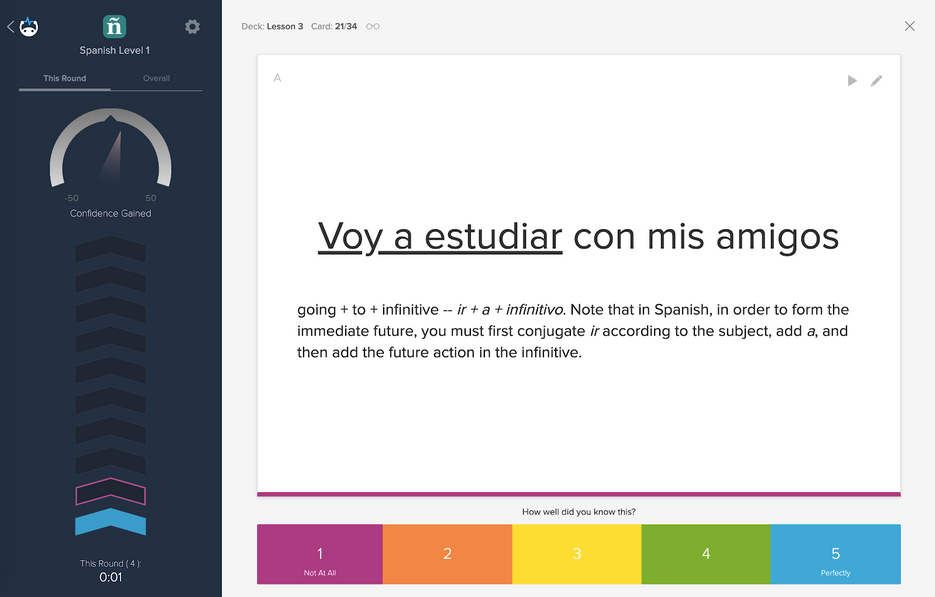For most people who set out to learn a new language, the ultimate goal is to achieve an almost native fluency. The keyword in that sentence is ‘almost’.
While we may put considerable effort into studying the grammar and vocabulary, there is one small but significant aspect of any language that is hard for adults to grasp: phonetics. The ‘art’ of imitating native sounds is in fact the most difficult part of language learning. That's why if you're learning a language you should seriously practice speaking it.
If you're currently learning a new language and struggling to grasp the grammar or are faced with the arduous task of memorizing a vast vocabulary, you may think this absurd. But the fact is, there are physical restrictions that make it hard—or even impossible—to achieve a perfect foreign pronunciation.
Let's dive into why people have accents and how you can improve your own foreign accent.
The elusiveness of foreign accents
Why do people have accents? The answer, naturally, lies in the variety of sounds in different languages. Anyone who has ever tried to speak a language that differs greatly from their native tongue knows how challenging this is.
Every language consists of small sound elements (called phonemes) that, when strung together, make up each word’s unique pronunciation. Examples for language-specific sounds that foreign speakers find hard to duplicate are the ‘th’ in English (a dental fricative sound), the nasal ‘un’ in French and the German Umlaute ‘ä, ö, ü’.
Why is it so difficult to imitate these sounds?
The explanation lies in our brain and its structural and developmental changes as we grow older. Have you ever heard of those "windows of super learning" or the "critical period" that allow children to learn with a speed and ease that adults can only dream of?
It is often said that it is important to learn languages young and there is in fact a physiological reason to do so. After birth, infants have universal language learning capabilities. As opposed to adults, they can perceive every phoneme in any language and therefore possess the ability to fully master any tongue—if they are exposed to it. While children by no means are born with the ability to speak all languages, they are born with the ability to learn them. During certain phases of development these abilities are even greater than at any other time in life.

This is what happens in the brain during "super learning windows of opportunity": Driven by regulatory genes (which do as their name suggests), the activity of neurotransmitters that support learning (like dopamine and glutamate) increases by as much as 225%. During these phases of increased neural activity, children not only learn faster, certain neurological processes also ensure that they will retain this information long-term. These windows of opportunity are the only time in a human’s life that they will ever become a true master of any language.
For a person to be able to pronounce certain sounds, it is necessary that they be exposed to them before a certain age; afterwards, they not only lose the ability to speak these sounds, but also to hear them.
This can be explained as follows: in a child’s (super learning) brain, large parts of the neural capacity are dedicated to the acquisition of language. Later in life, most of these neurons are rerouted, only a small percentage remains and settles in specific areas of the brain (language skills become localized in the left brain hemisphere, the process is called lateralization).
If we attempt to learn the sounds associated with another language later in life without having received the proper stimuli as a child, we may find it to be impossible: the responsible networks (or neural connections) never fully developed, or neurons once dedicated to language acquisition have rewired for a different use.
Can you only be fluent if you learn a language as a child?
Does this mean, then, that our attempts to become fluent and (near) native as an adult are in fact futile? This is at least what the physical process involved in language learning seems to suggest – at least when it comes to pronunciation.
It is still necessary to explore why some adult learners become much more proficient in their pronunciation of foreign languages than others. There are of course famous examples like Arnold Schwarzenegger who, despite living in another country and conversing in its native tongue (their second language) for years, are never able to overcome the heavy accent of their native language. Others smoothly adopt the characteristic traits of a second (or third) language if they spent some time among native speakers.
The neurological basis is the same for everyone: Any language acquired after puberty will have to build its synaptic connections in the network established to hold the mother tongue(s) as a child. The pattern mastered in that context therefore affects our level of spoken mastery for languages learned later in life. In contrast, our vocal tract—the physiological basis for the production of speech sounds—differs in regards to shape and size (of the mouth, throat, tongue, teeth, etc.) for everyone. An accent can therefore be merely a product of a difference in physical production.
However, it is also possible that genetics or early life experiences (e.g. exposure to a foreign tongue) play a role in how well we master pronunciation. Lastly, as always, there is motivation. For those who put their mind to it and make a concentrated effort, adults can learn a language even faster than children and with almost an an authentic-sounding accent in a foreign language.
Wondering how? Here are several tips for practicing your pronunciation in another language. Shadowing is an especially useful technique for sound more like a native-speaker. And if you need a goal to work towards: the first time a native tells you they never would have guessed you to be non-native, that is the greatest compliment.
How to learn a foreign language
Learning a new language is by no means an easy feat. In this article, we've touched upon phonetics and pronunciation but there are so many other factors to learning a language: listening, reading, speaking, and so on. It's no wonder that many people don't know where to start when they decide to learn a language outside of high school.

Brainscape has your back. We've developed a complete toolkit for learning a foreign language on your own—with tips for the best tools and websites, how to learn vocab quickly, and how to best tackle the tedious job of understanding grammar.
Check out our language-learning guide today, and best of luck on your learning journey!
Sources
Abu-Rabia, S., & Kehat, S. (2004). The critical period for second language pronunciation: is there such a thing? Educational Psychology, 24(1), 77–97. https://doi.org/10.1080/0144341032000146467
American Speech-Language-Hearing Association. (2024). Accent modification. https://www.asha.org/public/speech/development/accent-modification/
Anderson, F. (2020, January 27). Understanding accented speech: AKA, understanding speech. Washington University in St. Louis, Psychological & Brain Sciences. https://psych.wustl.edu/news/understanding-accented-speech-aka-understanding-speech
Husain, N. (2023, November 22). Babies’ Brains Are Primed for Their Native Language Before Birth. American Association for the Advancement of Science. https://www.aaas.org/news/babies-brains-are-primed-their-native-language-birth#:~:text=Although%20most%20newborns%20are%20considered,sounds%20of%20their%20native%20language.
Lewis, R. (2020, July 10). What is Shadowing And Why Should You Use It To Improve Your English Speaking Skills? Leonardo English. https://www.leonardoenglish.com/blog/what-is-shadowing
Titzer, R. (2019, January 3). Window of Opportunity for Learning Language. The Science of Early Learning. https://thescienceofearlylearning.com/science/window-of-opportunity-for-learning-language/#:~:text=The%20window%20of%20opportunity%20for,around%2011%20months%20of%20age.
Trafton, A. (2024, August 26). Scientists find neurons that process language on different timescales. MIT News | Massachusetts Institute of Technology. https://news.mit.edu/2024/scientists-find-neurons-process-language-on-different-timescales-0826
Wilson, J. (2009). Windows of Super Learning Opportunity. Cracking the Learning Code. https://crackingthelearningcode.com/element-11/
